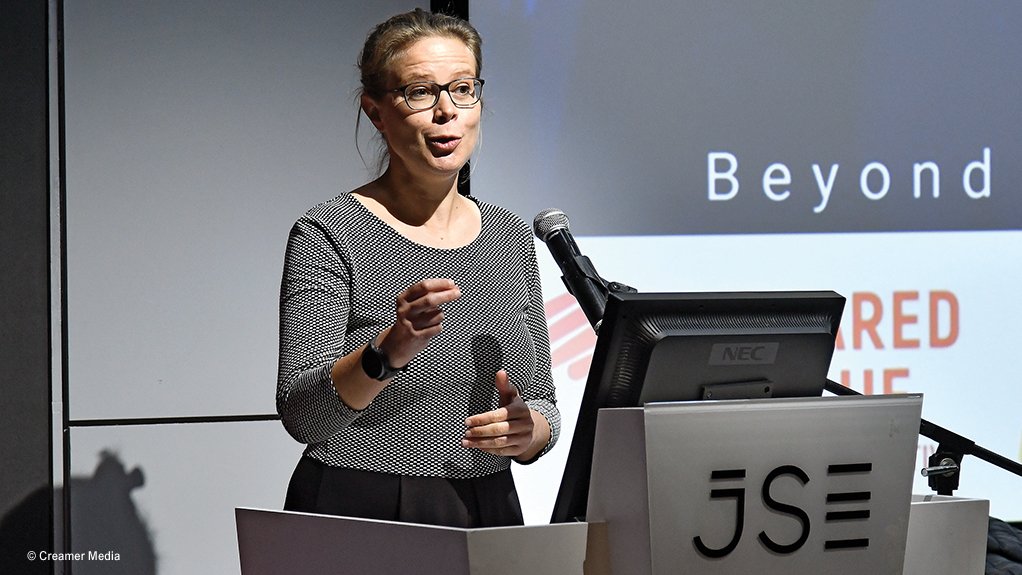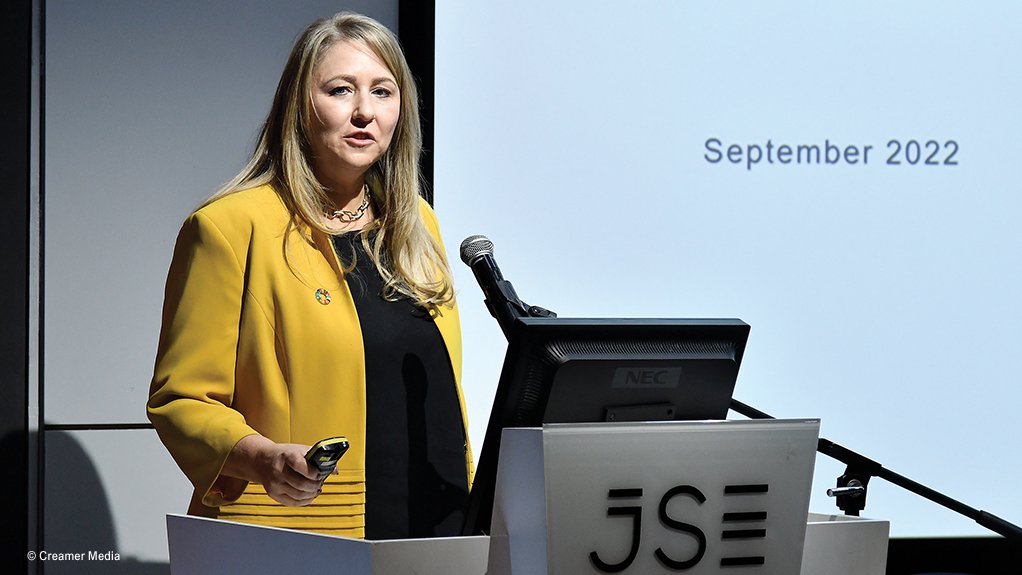Business leaders emphasise sustainability



FRANZISKA SPÖRRI SECO aims to support South Africa in achieving a sustainable future and in increasing the country’s competitiveness
Photo by Donna Slater
TANYA DOS SANTOS Sustainability goes beyond aiming to achieve net zero - businesses should focus on being “net positive”
Photo by Donna Slater
The Shared Value Africa Initiative and global organisation the Global Reporting Initiative (GRI) held a business leadership discussion on September 1, in Sandton in Gauteng, on the importance of moving beyond compliance to build sustainable businesses.
The aim of the discussion was to provide insight on why environmental, social and governance (ESG) compliance is more about building sustainable businesses than about meeting the minimum requirements.
The panellists emphasised the importance of businesses’ ensuring authentic and ethical reporting on how companies affect people, the economy and the environment, and on how businesses contribute to building a sustainable future.
During the discussion, financial services company Investec sustainability global head Tanya dos Santos argued that the concept of ESG is “misleading”, as there should rather be more emphasis on understanding the broader concept of sustainability.
While businesses in South Africa tend to focus more on the social aspect of ESG – owing to various social issues facing the country, such as unemployment – she explained that all three concepts are of equal importance.
“[It] will be the fundamental downfall of our economy if we don't focus on climate, because the ‘E’ [in ESG] is the basis of everything else. If we don't focus on the E, we won't have a society, we won't have an economy and there will be nothing to govern.”
Hence, Dos Santos argued that the concepts of an efficient economy, materiality and impact should be added to the term ESG.
An efficient economy will enable businesses to create a sustainable impact, while materiality would ensure that businesses integrate sustainability reporting into their business strategies.
Further, she explained that positive impacts should follow a sustainable development goals framework.
“We need an efficient economy to have sustainable impact, and that means economic participants, that means people who are being uplifted and participating and helping to grow the economy,” said Dos Santos.
She added that businesses should emphasise the terms ‘enduring’, which focusses on the long term, and ‘worth’, which focusses on “value across all areas of people, planet and profit”.
Moreover, she explained that sustainability goes beyond aiming to achieve net zero, with businesses focusing on being “net positive”.
“Net positive [refers to] companies that are ensuring that they contribute more to the world than they take from it,” she noted.
Building Trust
With the discussion focussing on global sustainability initiatives for businesses, State Secretariat of Economic Affairs (SECO) economic cooperation and development South Africa head Franziska Spörri highlighted the importance of establishing trust, forging alliances and facilitating exchanges among various stakeholders.
“All of us together can build this future that is sustainable.”
SECO aims to support South Africa in achieving a sustainable future and to increase its competitiveness, which Spörri explained can be aided through the adoption of ESG strategies.
Further, she highlighted the importance of assisting small, medium-sized and microenterprises in adopting ESG principles.
SECO is addressing this challenge by establishing two pillars.
The first pillar entails supporting the private sector through organisations, such as the GRI, to be more viable and resource efficient, while the second entails establishing favourable economic framework conditions for businesses to operate.
Spörri also highlighted that, from a macroeconomic support division viewpoint, the role of the government is important.
“We need to work together, we need to understand each other’s needs [and] struggles. I think we are on a good way with such initiatives we are supporting,” she concluded.
Article Enquiry
Email Article
Save Article
Feedback
To advertise email advertising@creamermedia.co.za or click here
Announcements
What's On
Subscribe to improve your user experience...
Option 1 (equivalent of R125 a month):
Receive a weekly copy of Creamer Media's Engineering News & Mining Weekly magazine
(print copy for those in South Africa and e-magazine for those outside of South Africa)
Receive daily email newsletters
Access to full search results
Access archive of magazine back copies
Access to Projects in Progress
Access to ONE Research Report of your choice in PDF format
Option 2 (equivalent of R375 a month):
All benefits from Option 1
PLUS
Access to Creamer Media's Research Channel Africa for ALL Research Reports, in PDF format, on various industrial and mining sectors
including Electricity; Water; Energy Transition; Hydrogen; Roads, Rail and Ports; Coal; Gold; Platinum; Battery Metals; etc.
Already a subscriber?
Forgotten your password?
Receive weekly copy of Creamer Media's Engineering News & Mining Weekly magazine (print copy for those in South Africa and e-magazine for those outside of South Africa)
➕
Recieve daily email newsletters
➕
Access to full search results
➕
Access archive of magazine back copies
➕
Access to Projects in Progress
➕
Access to ONE Research Report of your choice in PDF format
RESEARCH CHANNEL AFRICA
R4500 (equivalent of R375 a month)
SUBSCRIBEAll benefits from Option 1
➕
Access to Creamer Media's Research Channel Africa for ALL Research Reports on various industrial and mining sectors, in PDF format, including on:
Electricity
➕
Water
➕
Energy Transition
➕
Hydrogen
➕
Roads, Rail and Ports
➕
Coal
➕
Gold
➕
Platinum
➕
Battery Metals
➕
etc.
Receive all benefits from Option 1 or Option 2 delivered to numerous people at your company
➕
Multiple User names and Passwords for simultaneous log-ins
➕
Intranet integration access to all in your organisation




















